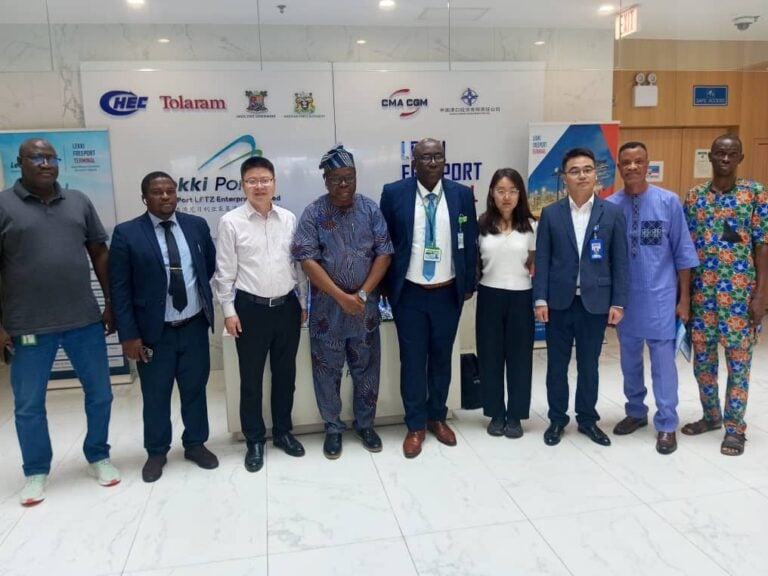The Lekki Deep Sea Port is projected to contribute $360 billion to Nigeria’s economy and create around 170,000 jobs over its 45-year concession period, according to the port’s Managing Director, Wang Qiang.
Speaking at a stakeholders’ meeting in Lagos on Tuesday, Qiang noted that while the port is still in its early operational stages, it has already attracted significant investment and continues to recover from initial construction costs.
“We invested over one billion dollars in building the port, and it will take some time to recoup the investment,” he said. “The port is running well, but due to the heavy upfront costs, we are still in the recovery phase.”
Qiang described Lekki Port as a critical link in Nigeria’s logistics network and called for stronger government support, particularly in infrastructural development.
Emmanuel Anda, Port Manager of the Nigerian Ports Authority, praised the port as a “game-changer” for the country’s trade and economy, highlighting its role in boosting exports and improving import efficiency. He expressed optimism that Nigeria could become a global export hub within the next decade.
The Chief Commercial Officer of Lekki Freeport Terminal, Kehinde Olubi-Neye, emphasized that automation has improved operations and reduced congestion, while the port can now accommodate the largest vessels in Nigeria.
Adesuwa Ladoja, Managing Director of Lagos Free Zone, noted that surrounding free zones have enhanced value addition for exports. She described Lekki Port as a model of resilience and innovation, developed even during the challenging COVID-19 period.
Community representatives also welcomed the project, praising its corporate social responsibility initiatives, including youth empowerment, skills training, and educational support programs.
Located in the Lagos Free Zone, 65 kilometers east of Lagos, Lekki Port is Nigeria’s first multi-purpose deep sea port and the deepest in West Africa, with a depth of 16.5 meters, capable of receiving 18,000 TEU vessels. The port began its concession in 2019, completed phase 1 of construction in 2022, and commenced commercial operations in April 2023.
Qiang urged Nigerians and businesses to take advantage of the opportunities offered by the port, stressing its potential to transform trade and industrial activity in the country.



